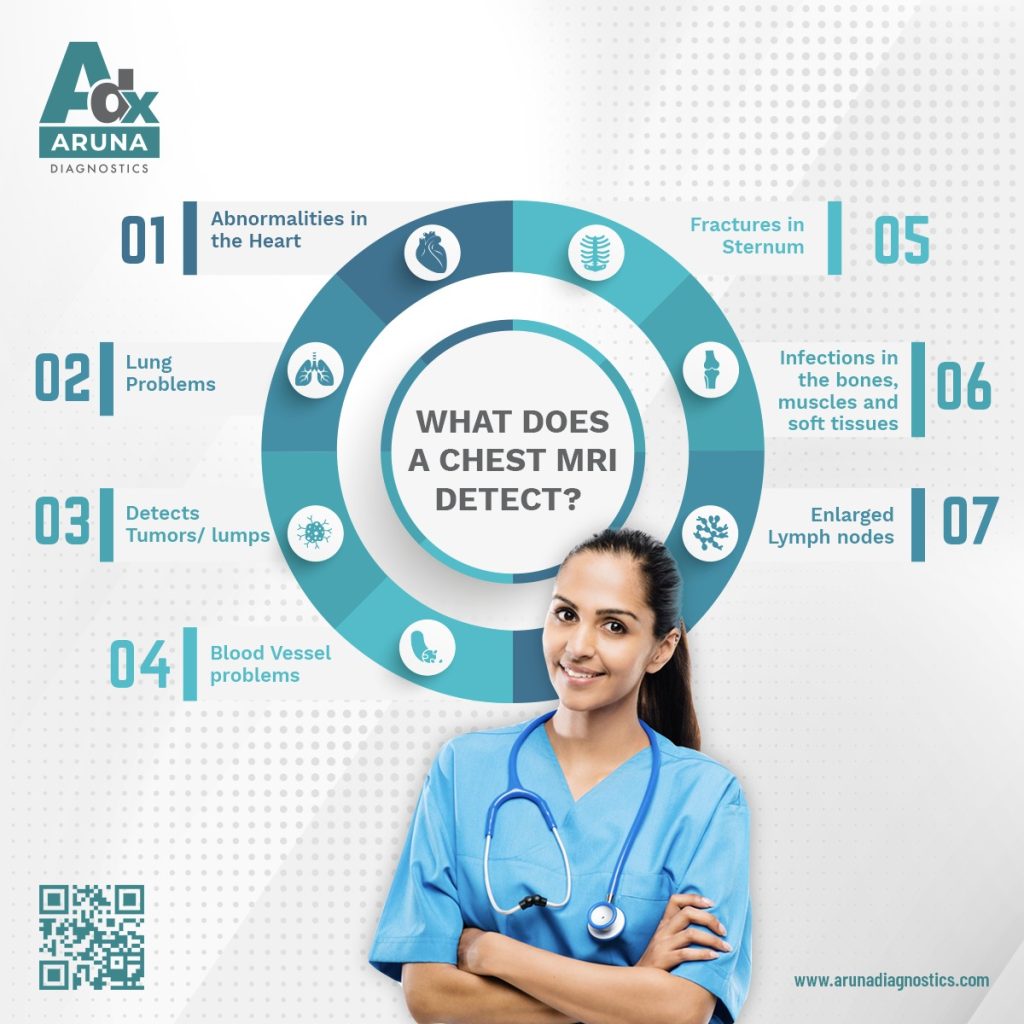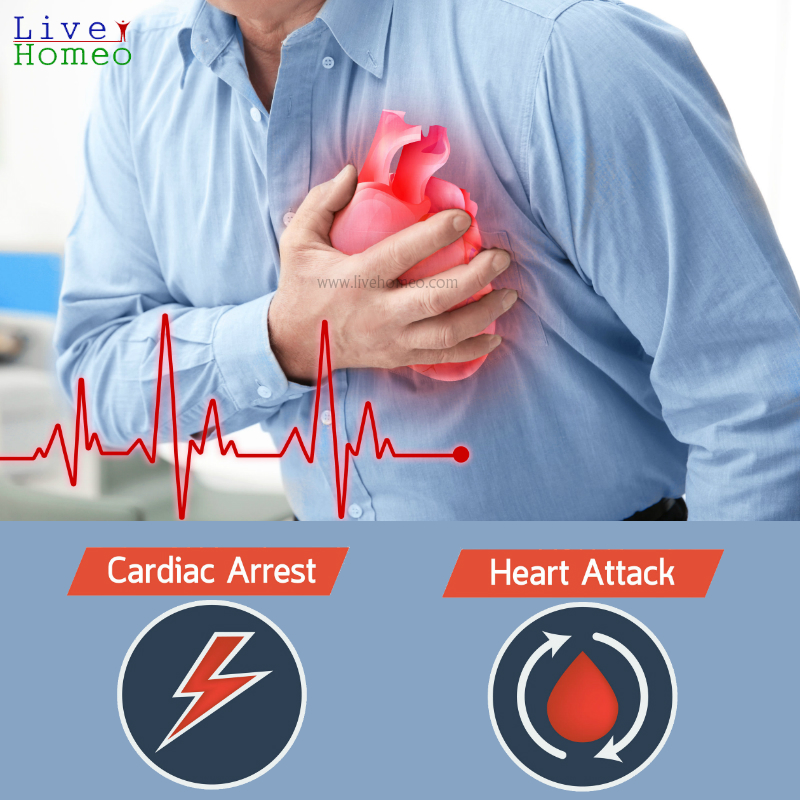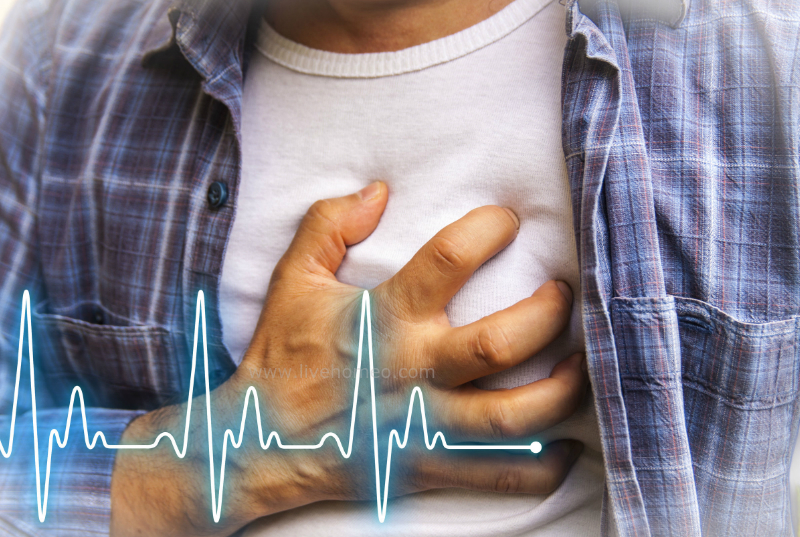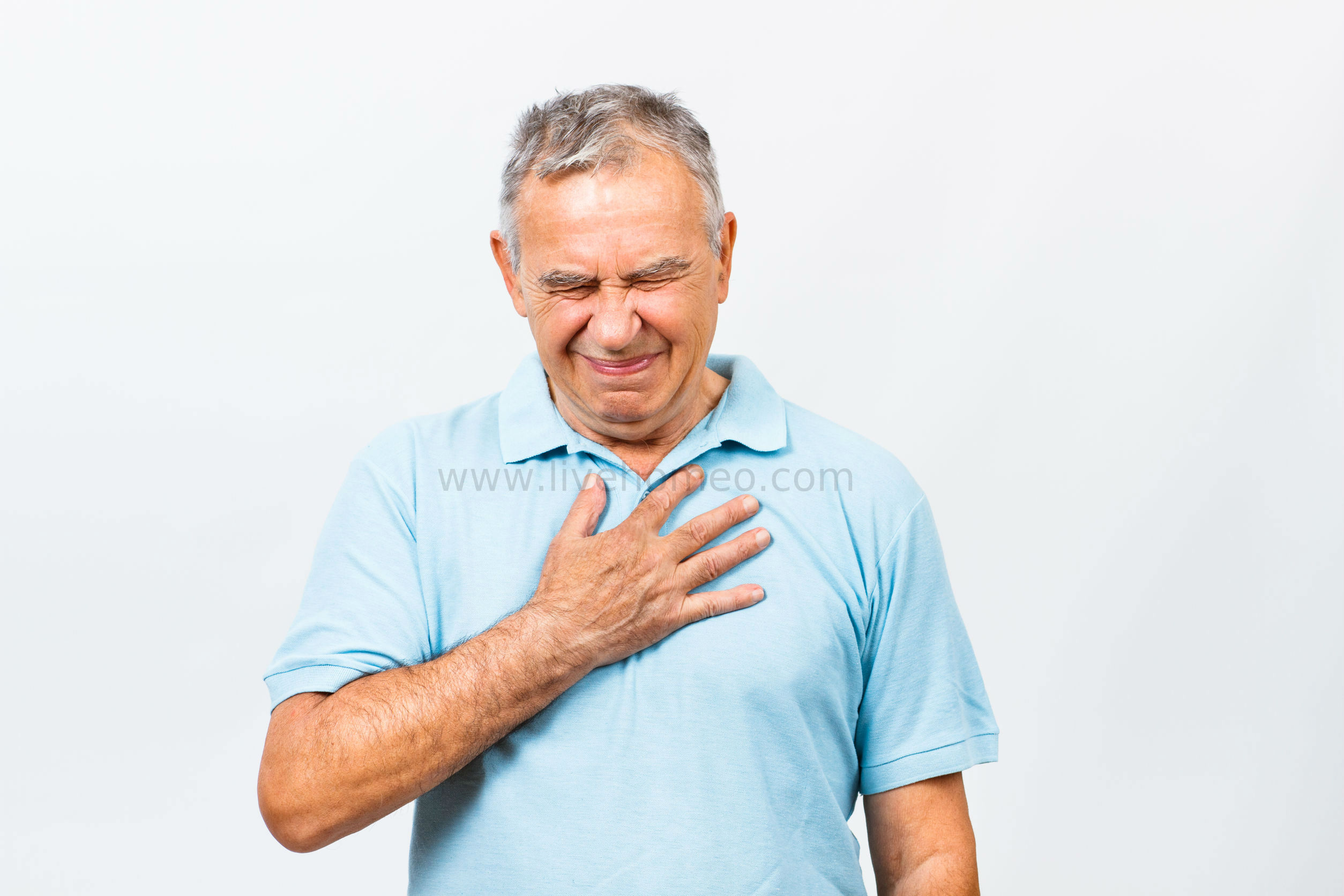Chest MRI is a non-invasive imaging procedure that gives detailed Chest, blood vessels, and heart images. Doctors recommend Chest MRI if they suspect abnormalities in the Chest, lungs, and surrounding area. Aruna Diagnostics offers the best Chest MRI in Hyderabad using the latest IN-BORE MRI technology.
About Chest MRI
During Chest MRI, detailed pictures of the chest cavity are produced using powerful magnetic fields and radiofrequency pulses. Clear images of the chest wall, pleura, heart, vessels, and mediastinum are produced with Chest MRI. Chest MRI also provides sequential imaging of the cardiovascular system. This helps assess the health and function of structures like the heart, valves, great vessels, etc.

What does a Chest MRI detect?
Chest MRI detects abnormalities in the tissues and other organs without incision. Doctors suggest Chest MRI to check
- Abnormalities in the Heart
- Lung Problems (empyema, pleural thickening)
- Detects Tumors/ lumps
- Determines tumor size, extent, and the degree of spread to adjacent structures.
- Evaluate blood flow
- Problems affecting Lymph Nodes
- Blood Vessel problems (blocked, narrow, wide, or damaged blood vessel)
- Fractures in Sternum
- Infections in the bones, muscles, and soft tissue
- Enlarged Lymph nodes
One may need Chest MRI if they are suffering from symptoms like chest pain and breathlessness. It guides doctors to plan treatment by detecting abnormalities. Chest MRI further shows how well treatments like chemotherapy are working.
How to Prepare for a Chest MRI
Patients should wear loose-fitting clothes, and in a few cases, you will be asked to change into a hospital gown. People should remove all the metal objects they are wearing before going for the test. As MRI uses powerful magnets, they attract metal objects.
People should inform their doctor if they have any metal implants like
- Artificial heart valves
- Brain aneurysm clips
- Ear implants
- Plates
- Screws
- Staples
- Vascular stents
Chest MRI is considered safe and is a painless procedure. Chest MRI is highly recommended as it shows organs without blockage by bone and foreign bodies. It also shows the tissues from multiple angles and evaluates blood flow without invasive procedures.
Best Chest MRI in Hyderabad at Aruna Diagnostics
Get the best Chest MRI at Aruna Diagnostics, one of the leading Diagnostics in Hyderabad. Aruna Diagnostics is proud to be the first Diagnostic center to utilize IN-BORE MRI technology in Telangana and Andhra Pradesh. We incorporate top-notch technology that combines outstanding image quality with patient-friendly amenities. Staff at Aruna Diagnostics assist the patients well during the imaging process and make them feel comfortable and safe.
Reach out to your nearest Aruna Diagnostics branches in Ameerpet, A S Rao Nagar, and Kukatpally. Get world-class luxury Diagnostic services at an affordable price range at Aruna Diagnostics.




